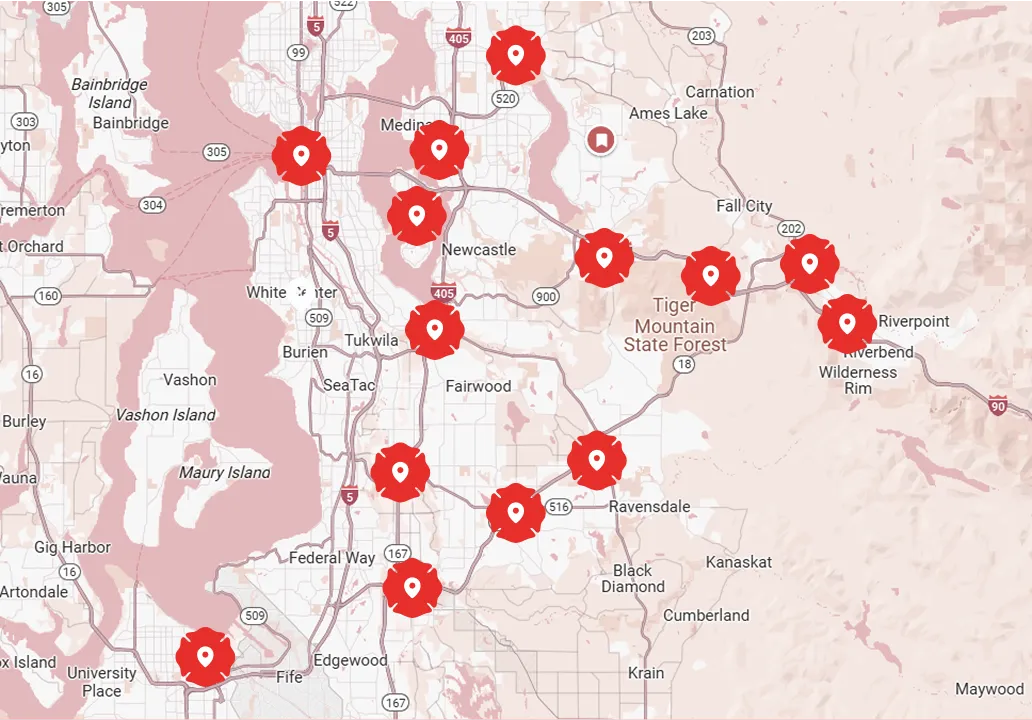Moving Companies in North Bend, WA
.webp)
North Bend, WA moves require local knowledge of weather, streets, and permitting. Reputable movers offer credentialed authority, insurance, and clear estimates, with a Bill of Lading serving as the contract. Understand liability options, including released value and full value coverage, and consider third-party policies for antiques. Service levels range from basic labor to full-service packing and storage. The selection process emphasizes written estimates, references, and experience with local neighborhoods, stairs, and seasonal traffic to ensure a smooth, safe relocation.

Moving Moving Companies in North Bend, WA
Moving within or to North Bend, WA requires a mover who understands the local terrain, seasonal weather, parking and permitting nuances, and the varied home types in the Snoqualmie Valley. This guide explains how reputable moving companies in North Bend, WA operate, what credentials and insurance to verify, the service levels available, common local challenges, and practical guidance for choosing a mover that protects your belongings and schedule.
Why local expertise matters for moves in North Bend, WA
North Bend sits at the base of the Cascade foothills and experiences heavy seasonal rain, occasional snow at higher elevations, and narrow residential streets in some neighborhoods. Movers familiar with North Bend will:
- Plan for wet-weather packing and floor protection to prevent damage from mud and rain.
- Anticipate access issues for houses with long driveways, steep grades, or tight turns common near the foothills.
- Know local permit requirements and parking restrictions for moving vans in downtown or subdivision areas.
- Schedule around peak demand months and weekend congestion on I-90.
Credentials every reputable mover should provide
Before hiring, always confirm these credentials to verify legal authority and accountability:
- DOT number and MC number (for interstate moves): These show federal registration and legal authority to transport household goods across state lines.
- State registration and local licensing (for intrastate moves): Washington movers should be registered with the appropriate state oversight authority.
- Proof of business insurance and worker coverage: General liability and workers compensation protect you and the crews.
- Written estimate and a clear Bill of Lading: The Bill of Lading is the moving contract and receipt for your shipment.
Ask for the mover’s DOT or MC numbers and verify them independently when possible. A legitimate mover will provide these details and explain the coverage levels and limits.
Insurance and liability options explained
Understanding moving liability is essential to protecting high-value items:
- Released value protection: Included at no extra charge in many moves, but reimburses at a low per-pound value. It is not full replacement coverage.
- Full value protection: Higher-cost option where the mover assumes responsibility to repair, replace, or offer a cash settlement for lost or damaged items.
- Third-party insurance: For antiques, fine art, or very high-value items, consider third-party transit or homeowner’s insurance endorsements that provide broader coverage.
- Storage coverage: If the move involves storage, confirm whether stored items are covered and for what limits.
A reliable mover will clearly explain these options in writing and include the selected option on your estimate and Bill of Lading.
Common moving services and how they compare
Moving companies in North Bend typically offer a range of service levels. Compare these when choosing a provider:
- Basic labor-only local moves: Movers load and unload your truck. You supply packing materials and the vehicle.
- Standard local moves: Hourly labor plus transportation, helpful for immediate local relocations inside King County.
- Full-service moves: Packing, crating, specialty handling, transportation, and unpacking. Best for busy households or when fragile items require expertise.
- Long-distance moves: Priced by weight and distance for interstate relocations. Requires federal registration.
- Specialty item moves: Pianos, hot tubs, safes, and antiques need specialized equipment and crews experienced with the Snoqualmie Valley’s home layouts.
- Storage-in-transit: Short- or long-term storage options; clarify access terms and insurance for stored goods.
Choosing between hourly local pricing and binding long-distance estimates depends on move size, complexity, and certainty around inventory.
Typical moving process and what to expect
A transparent process reduces surprises:
- Pre-move survey: In-home or virtual walk-through to produce an accurate estimate and inventory.
- Written estimate: Binding, non-binding, or binding-not-to-exceed should be clearly labeled; avoid verbal-only quotes.
- Move planning: Scheduling, parking/permit arrangements, and logistics for large items are confirmed.
- Move day procedures: Crew arrival window, Bill of Lading review, condition notes for high-value items, and a dedicated crew lead to answer questions.
- Delivery and inspection: Inventory check, documentation of damage if present, and claims initiation process if needed.
Keep a copy of the Bill of Lading and inventory list; these documents are crucial if a claim is necessary.
Common local challenges and solutions
- Rain and mud: Require floor runners, shrink-wrap, and protective padding. Verify the mover’s wet-weather procedures.
- Narrow streets and driveways: Ask about truck sizes and whether a smaller or shuttle vehicle will be used.
- Stair-only access or hillside homes: Confirm the crew’s experience with multi-flight stair carries and additional time or equipment required.
- Seasonal congestion on I-90: For east-west moves, factor in travel time and possible weather-related delays.
Experienced local movers will anticipate these issues and include them in the estimate.
How to choose a reputable mover in North Bend, WA
Evaluate potential movers by checking:
- Verifiable credentials (DOT/MC, state registration, and insurance). Request and review documentation before booking.
- Clear written estimates and explanation of binding vs non-binding options.
- Experience with local neighborhoods, homes with stairs, and seasonal weather conditions.
- Transparent explanation of liability coverage and claims procedures.
- Equipment and staffing: proper dollies, padding, straps, and vehicles sized for local roads.
- References or online presence that indicates consistent, professional behavior (look for patterns in feedback rather than single reviews).
When comparing bids, prioritize clarity and protection over the lowest price. A cheaper, unclear quote can become expensive if damage or delays occur.
Final considerations and move-prep tips
- Schedule outside peak summer weekends when possible to get better availability and more predictable pricing.
- Inventory and photograph high-value items before moving to assist with claims if needed.
- Consolidate fragile items and label boxes clearly to reduce handling issues on move day.
- Confirm parking and permit needs with the city or property manager for both origin and destination.
A well-chosen mover who provides documented credentials, clear insurance options, and local experience will make a North Bend move safer and less stressful. Prioritizing these elements helps ensure a smooth transition whether you are moving across town, across state lines, or into the scenic Snoqualmie Valley.

